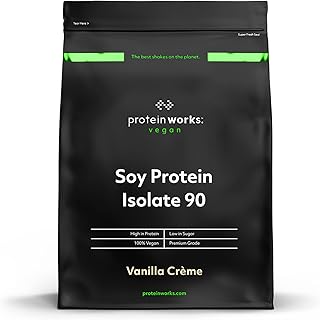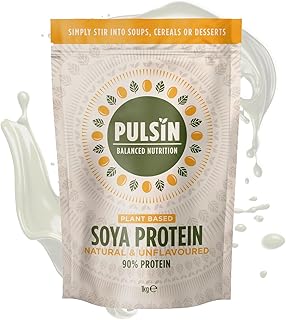A systematic review and dose-response meta-analysis study conducted by Jialin Yu and Hongmei Zeng from the Department of Neurology at The Second Affiliated Hospital, Jiangxi Medical College, Nanchang University, China, explored the association between high consumption of soy products and the risk of cognitive impairment and major neurocognitive disorders. The study aimed to investigate the potential impact of soy consumption on cognitive function and the development of neurocognitive disorders, considering the diverse mechanisms through which soy products may influence brain health.
As the global population ages rapidly, major neurocognitive disorders have become a significant challenge for healthcare systems worldwide. With projections indicating a substantial increase in the prevalence of major neurocognitive disorders, it has become crucial to focus on primary prevention strategies to mitigate the societal burden associated with these conditions. Evidence suggests that dietary interventions targeting modifiable risk factors, such as legume consumption, may play a role in delaying or preventing major neurocognitive disorders. Soy products, commonly consumed in traditional Asian diets, have been linked to various health benefits, including potential neuroprotective effects due to their nutrient-rich composition and bioactive compounds.
Epidemiological data have highlighted lower prevalence rates of major neurocognitive disorders in regions with high soy consumption, particularly in East Asia. Soy products contain natural phytoestrogens and isoflavones that have been associated with anti-inflammatory, antioxidant, and neuroprotective properties. While soy isoflavones have been the primary focus of neuroprotective research, emerging evidence suggests that other components of soy-based foods, such as fermented products like natto, may also contribute to cognitive health through various pathways.
The systematic review included six observational studies involving a total of 68,691 participants, focusing on the link between soy consumption and the risk of major neurocognitive disorders and cognitive impairment. The analysis revealed that elevated consumption of total soy products was associated with a reduced likelihood of major neurocognitive disorders, with a more pronounced protective effect observed in individuals without a history of stroke. However, the association with cognitive impairment was less clear, with some studies showing no significant correlation.
The dose-response meta-analysis indicated a linear negative correlation between diverse soy product consumption and cognitive decline or major neurocognitive disorders. Each 1-g per day increase in soy and natto consumption was associated with a decrease in the likelihood of major neurocognitive disorders. Subgroup analyses highlighted the protective effects of specific soy product types, with fermented products like natto showing stronger risk reduction benefits.
The study emphasized the potential benefits of moderate soy consumption, especially fermented varieties, in reducing the risk of major neurocognitive disorders. It underscored the importance of considering individual characteristics, dietary patterns, and product-specific features when recommending soy intake for cognitive health. The findings suggested that soy products could be a valuable component of comprehensive dietary strategies aimed at preventing cognitive decline and major neurocognitive disorders.
While the study acknowledged certain limitations, such as geographic bias and residual confounding factors, it provided valuable insights into the potential role of soy products in cognitive health. The authors called for further research to explore the underlying mechanisms, conduct intervention trials in high-risk populations, and evaluate the cost-effectiveness of incorporating soy products into public health guidelines for cognitive health.
In conclusion, the study indicated that high consumption of soy products may offer a dietary strategy for preventing major neurocognitive disorders, highlighting the need for additional well-designed studies to establish optimal dosing guidelines and inform personalized nutritional interventions in the field of cognitive health.
📰 Related Articles
- Moderate Coffee Consumption Linked to Lower Mortality Risk: Study
- Incorporating Soy and Nuts Reduces Breast Cancer Recurrence Risk
- Soy Consumption: Experts Debunk Health Concerns and Highlight Benefits
- Soy Consumption: Benefits, Risks, and Optimal Choices Explained
- Soy Consumption Safe and Beneficial for Cancer Patients: Expert






